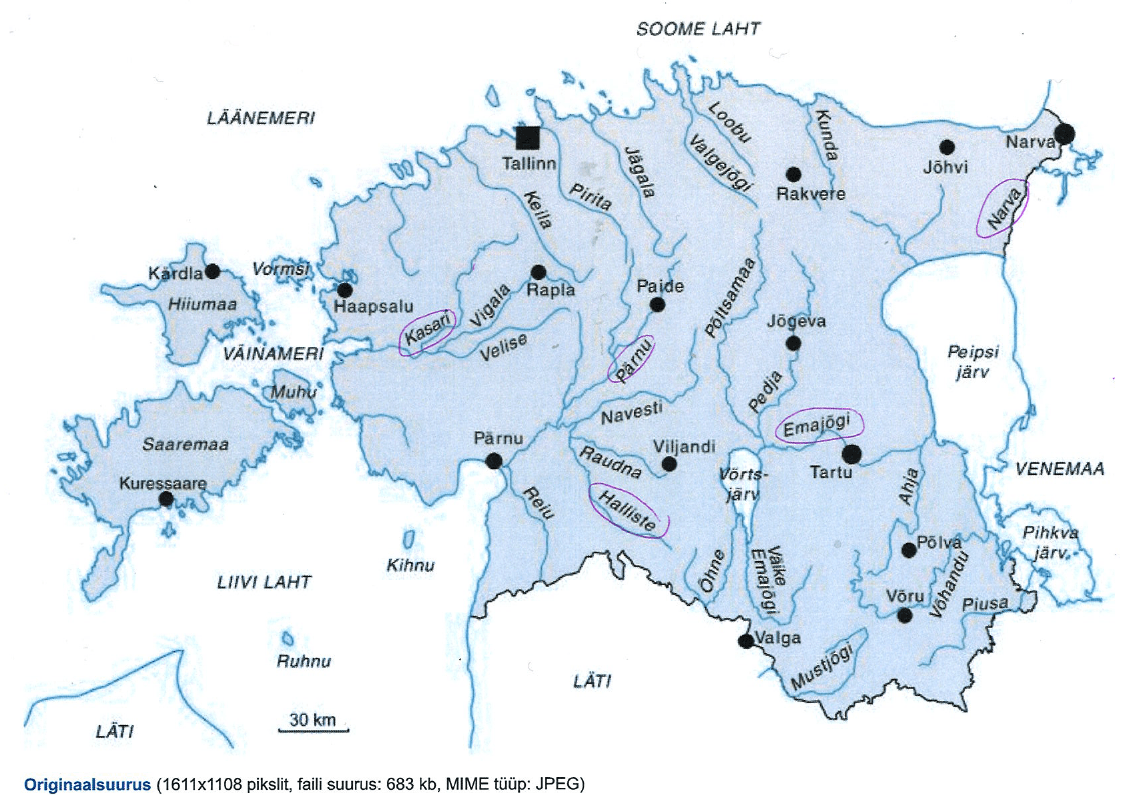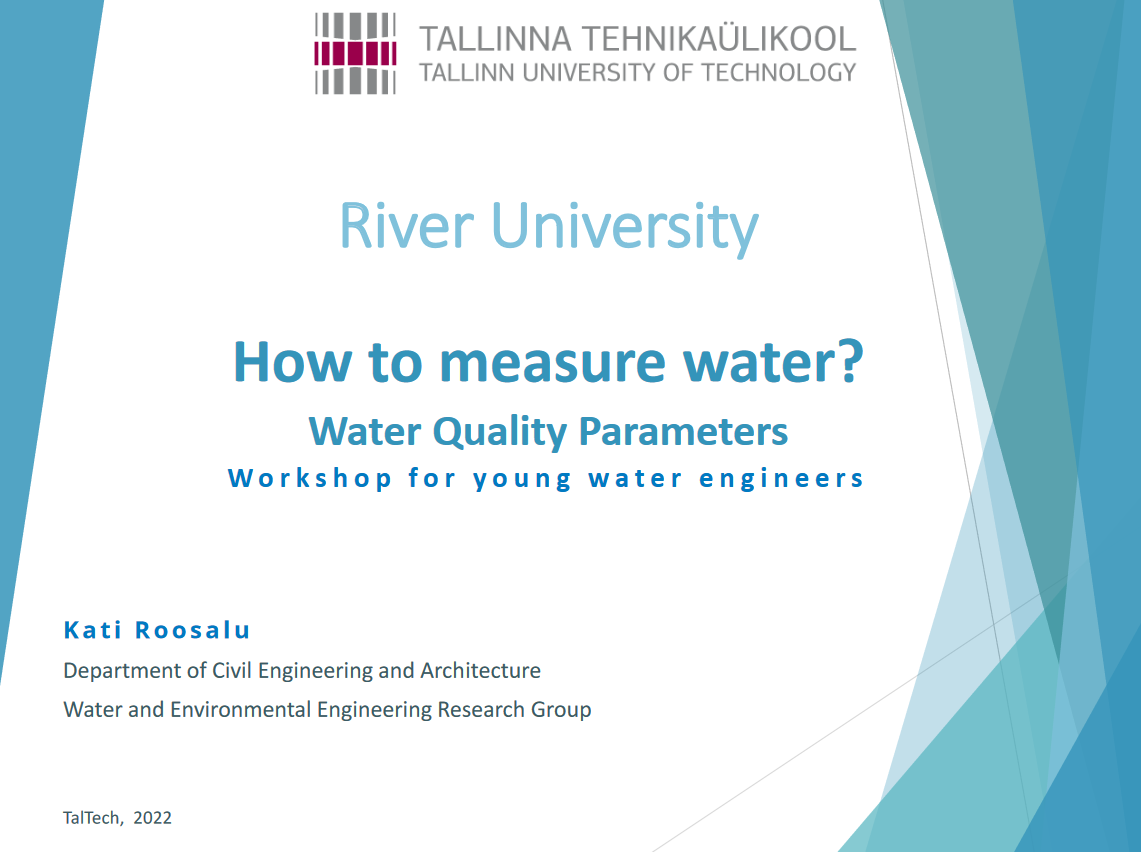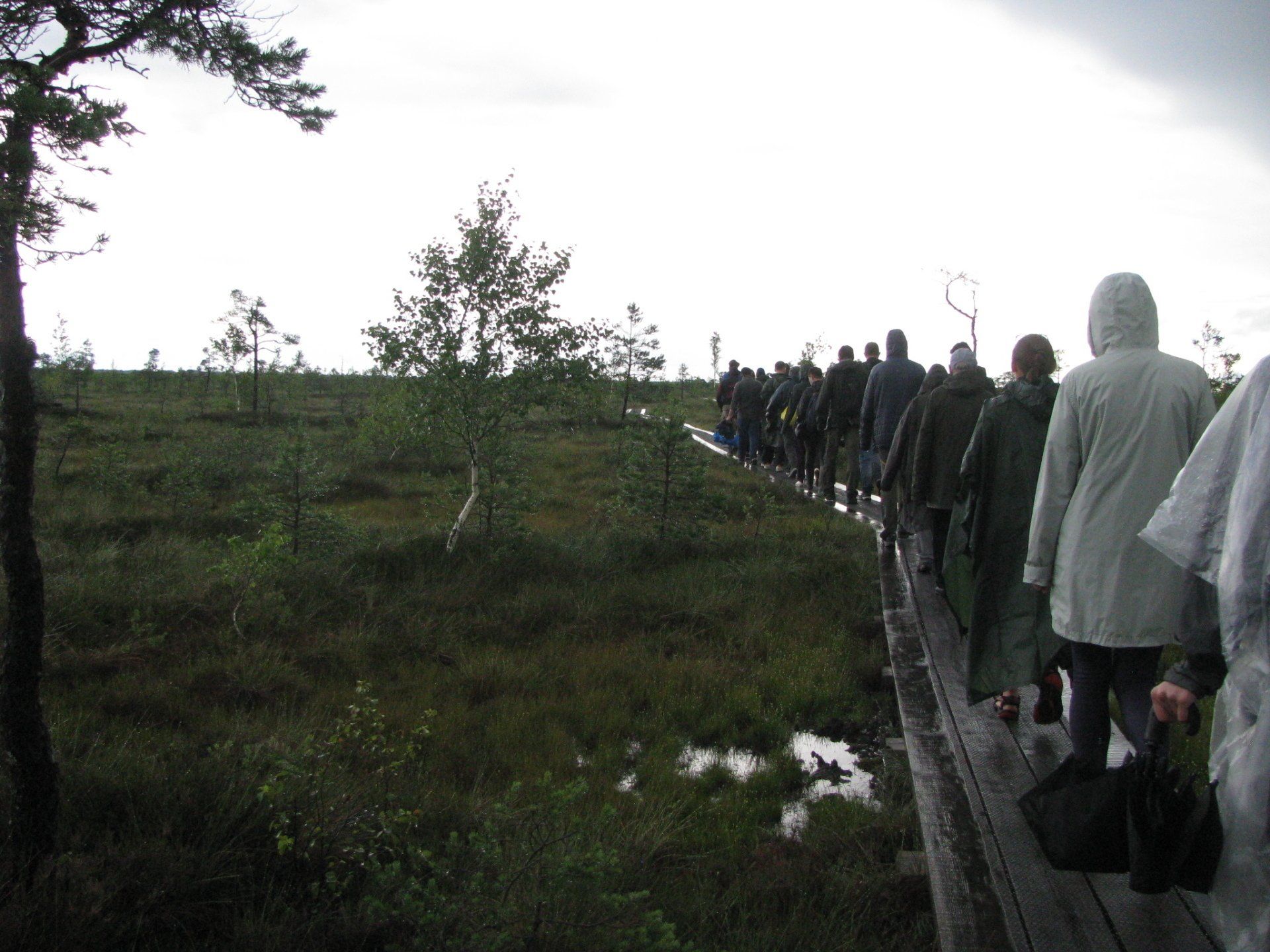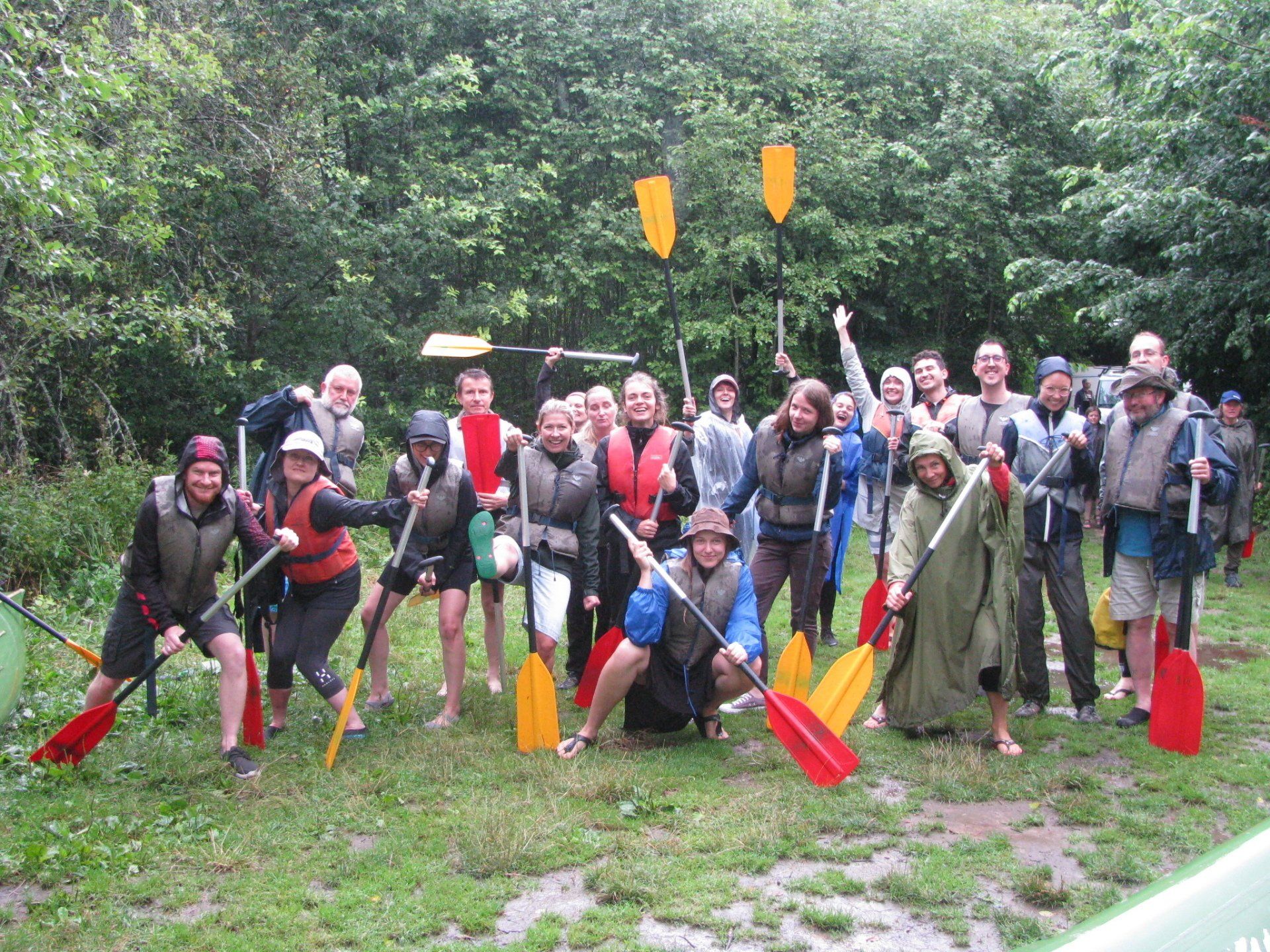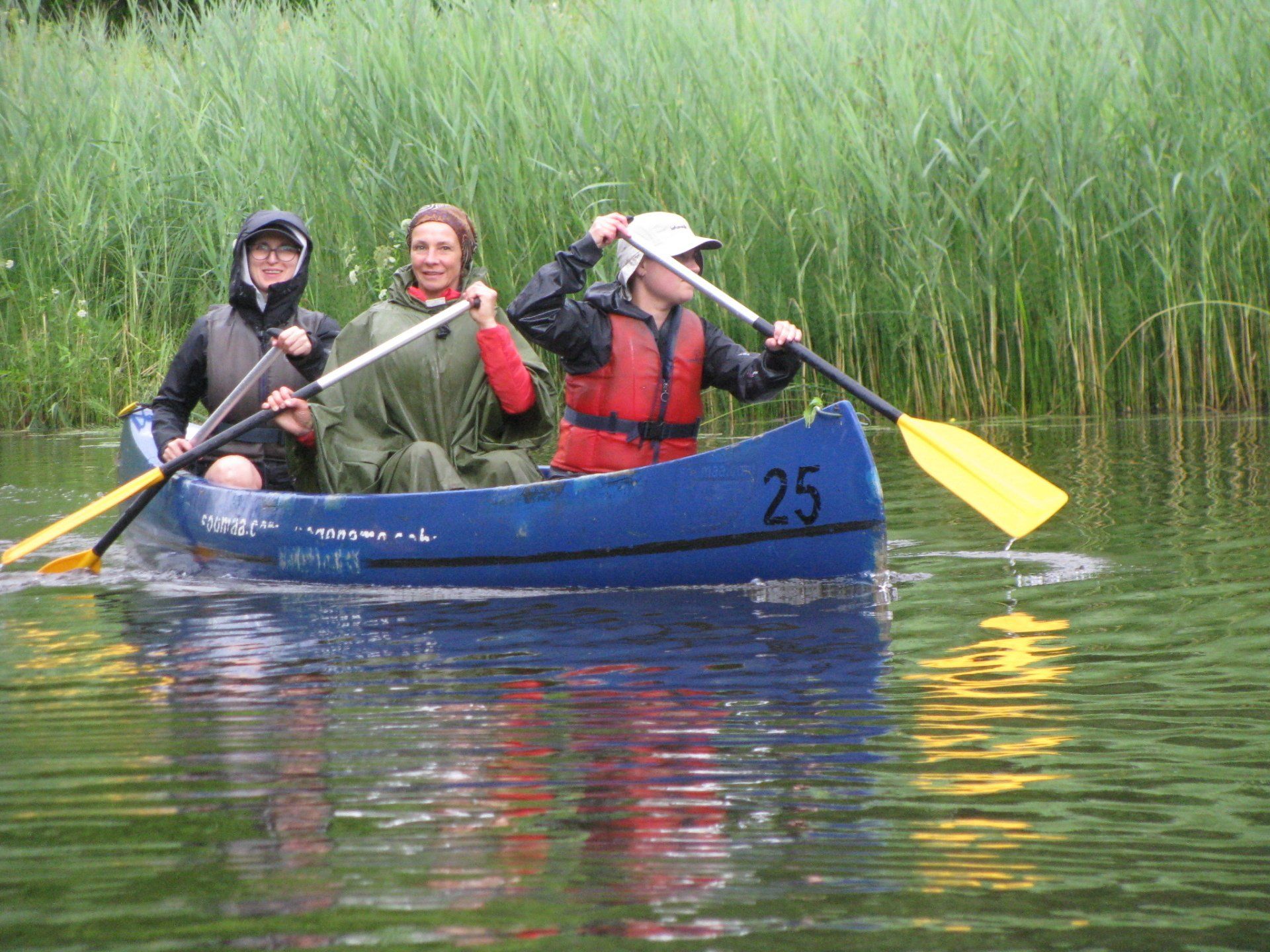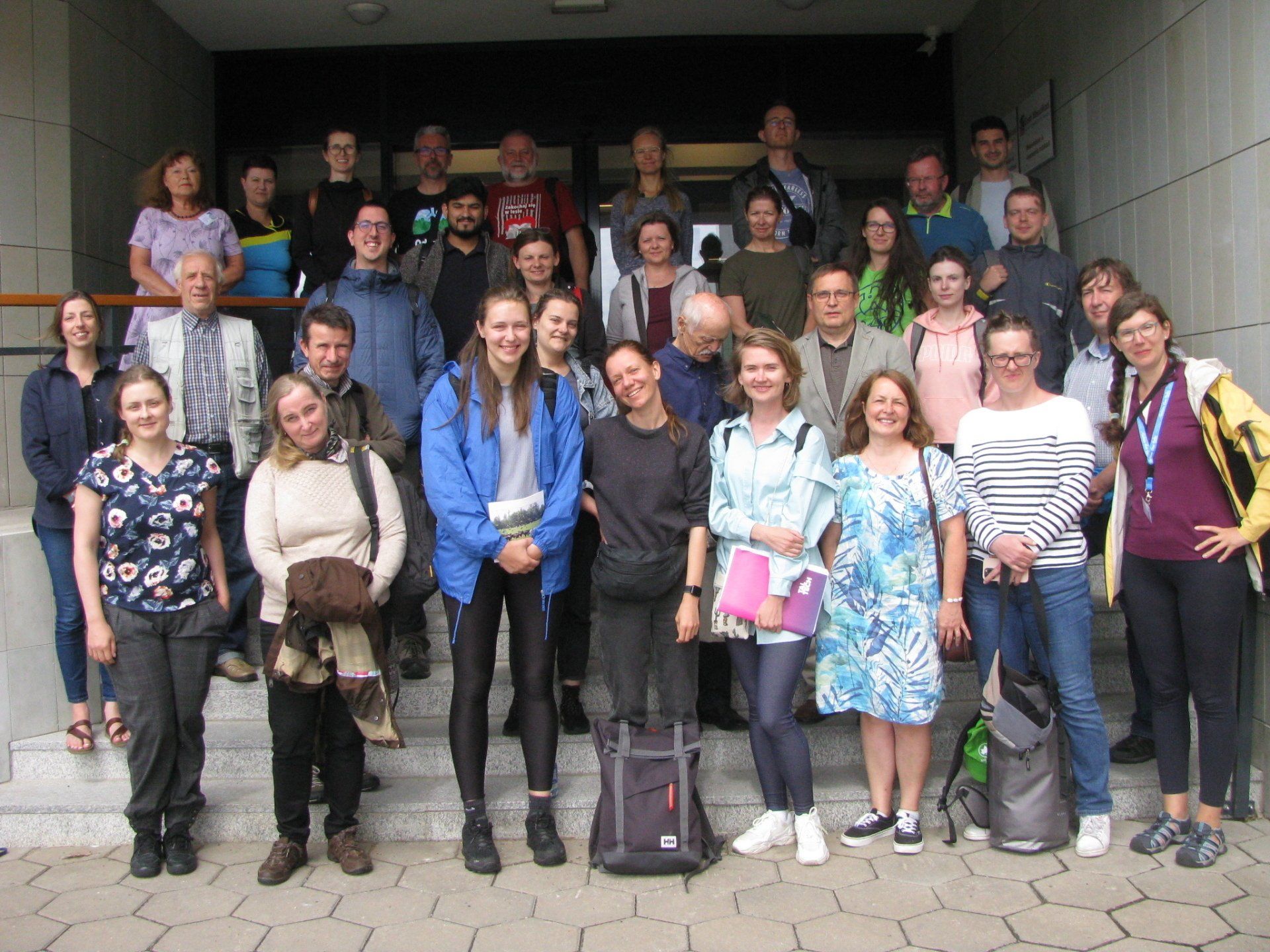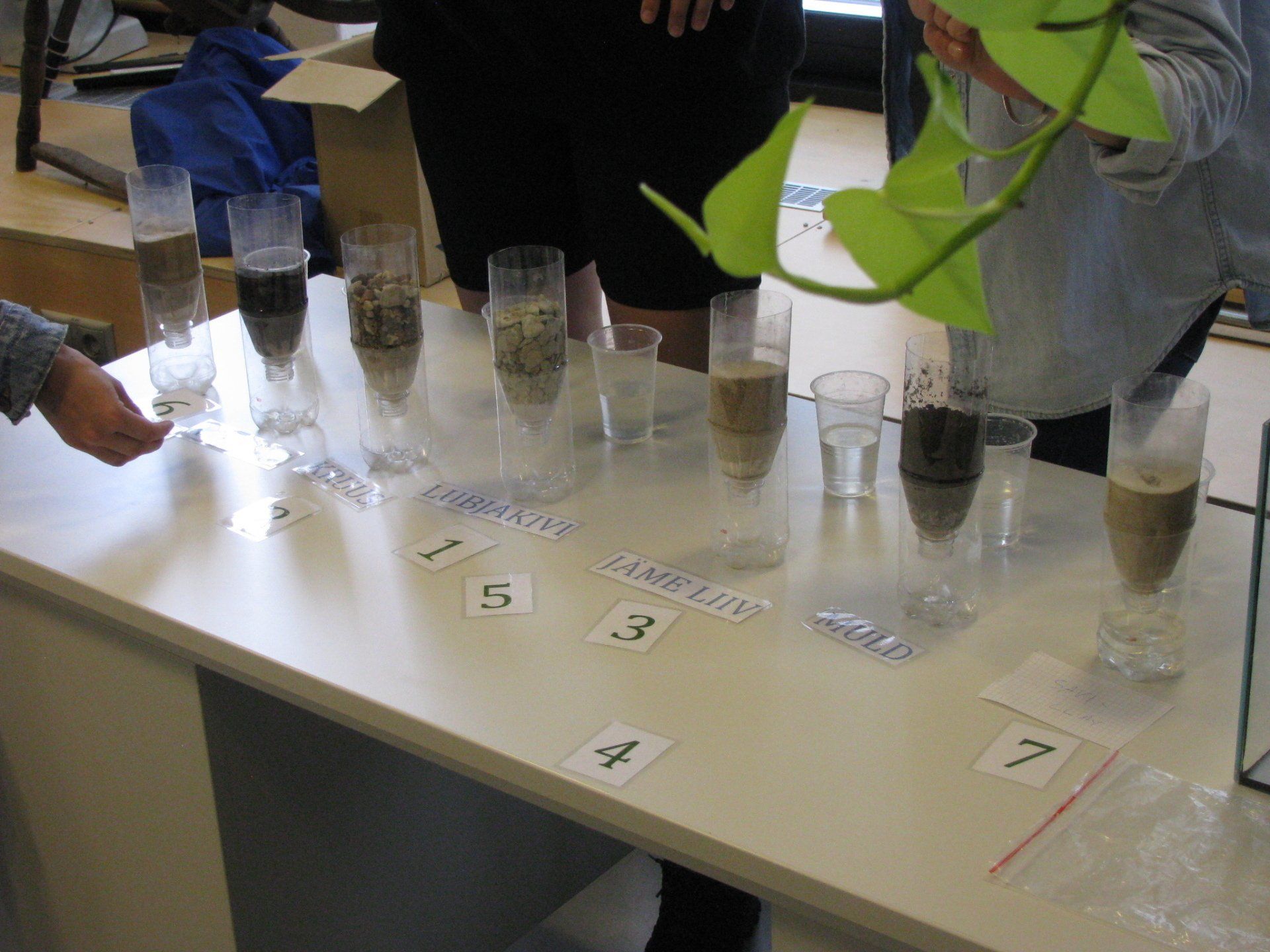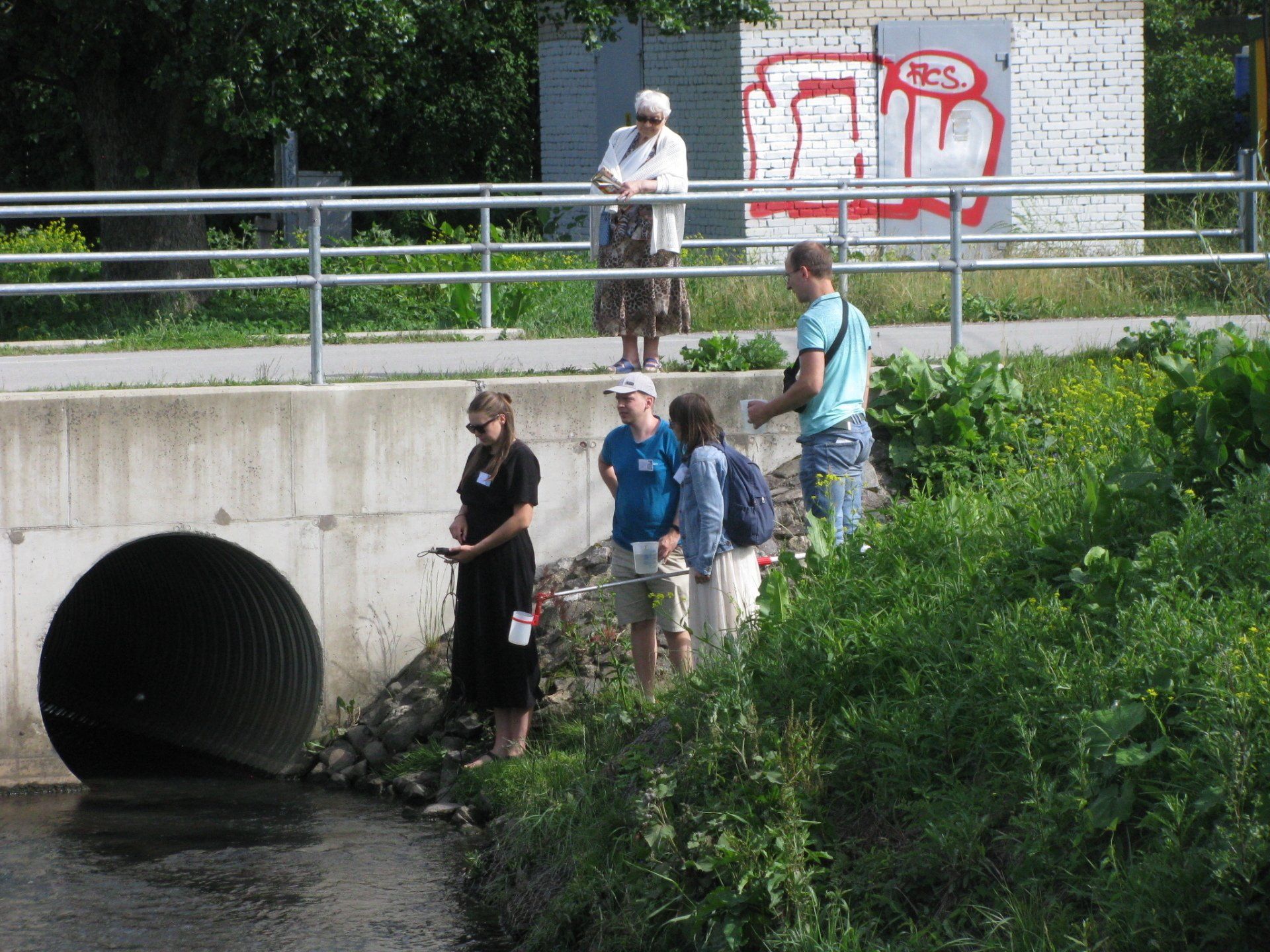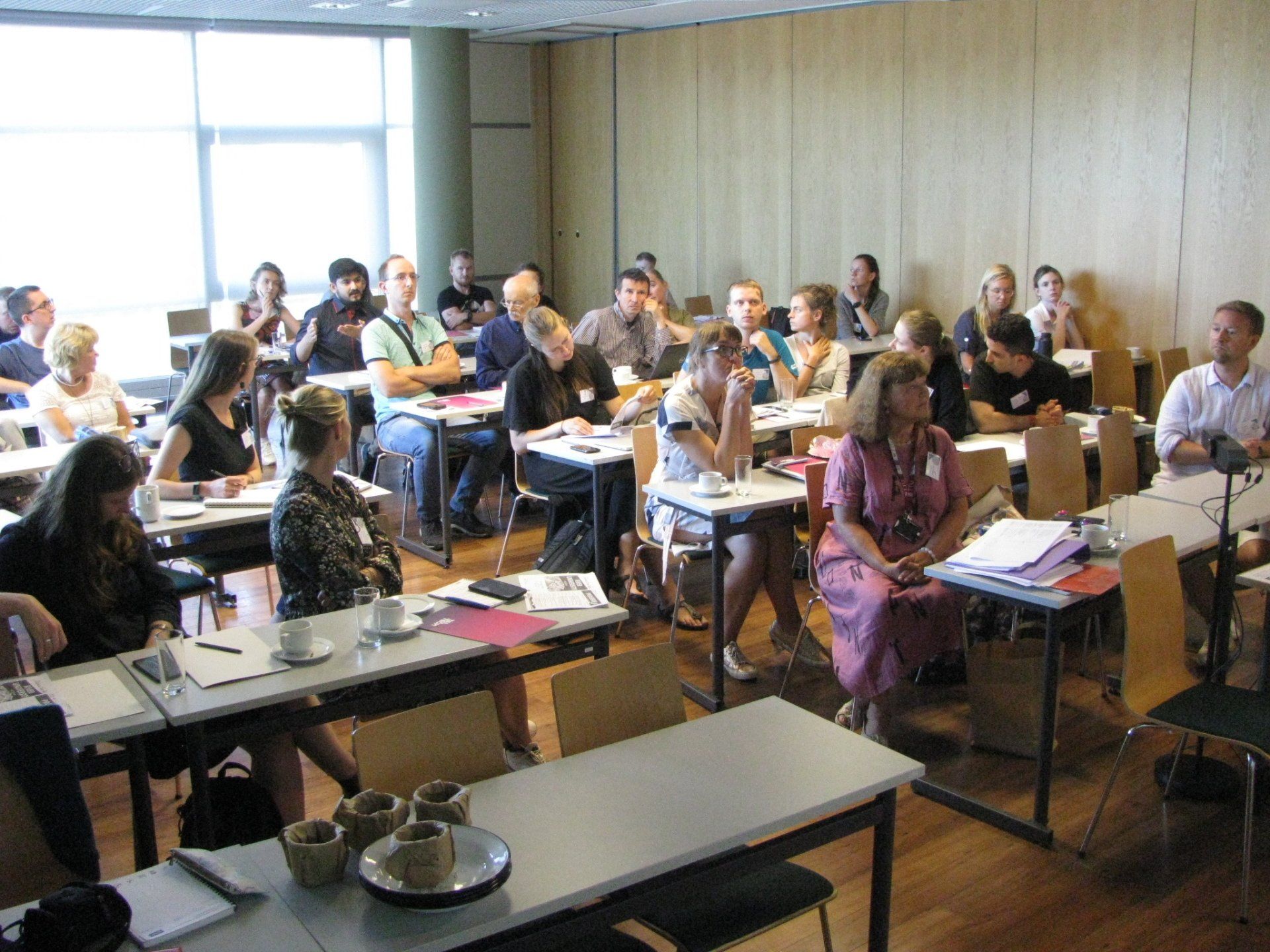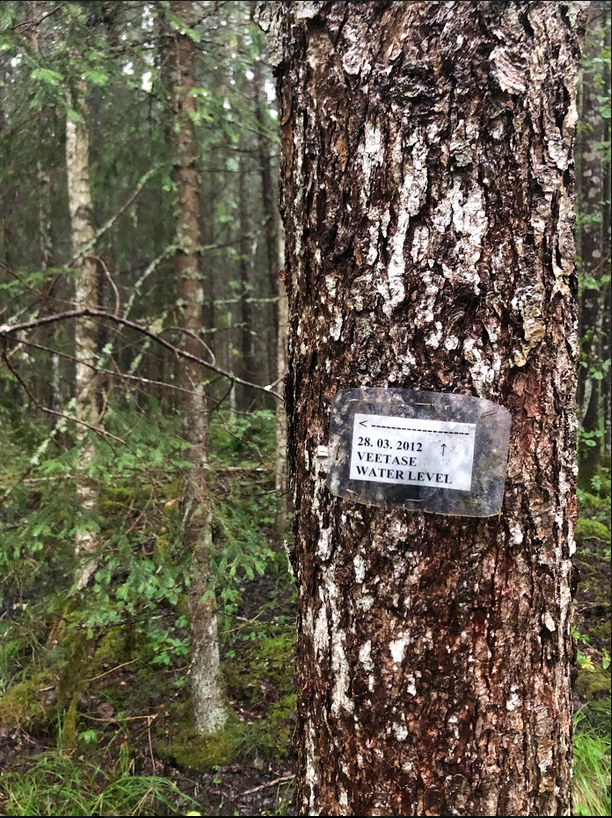
Welcome to River University 2022
The River University is an open and international, interdisciplinary course, sharing river ecosystems knowledge via open access, wide availability and understandable-science platform in the Baltic Sea Region and Europe for a variety of participants - river stakeholders: academia staff and students, river practitioners, water-related institutions and official country representatives, consulting/business participants, landscape architects, municipalities, locals and individuals.
The River University supports institutional and official knowledge and was founded by Ewa Leś in 2018 under the wings of Coalition Clean Baltic (CCB), where it has been successfully developed through the co-organization with different CCB Member Organizations. The pilot case took place in Poland in 2018. It was then established internationally with the 1st edition in Poland (2020) and the 2nd edition in Lithuania (2021).
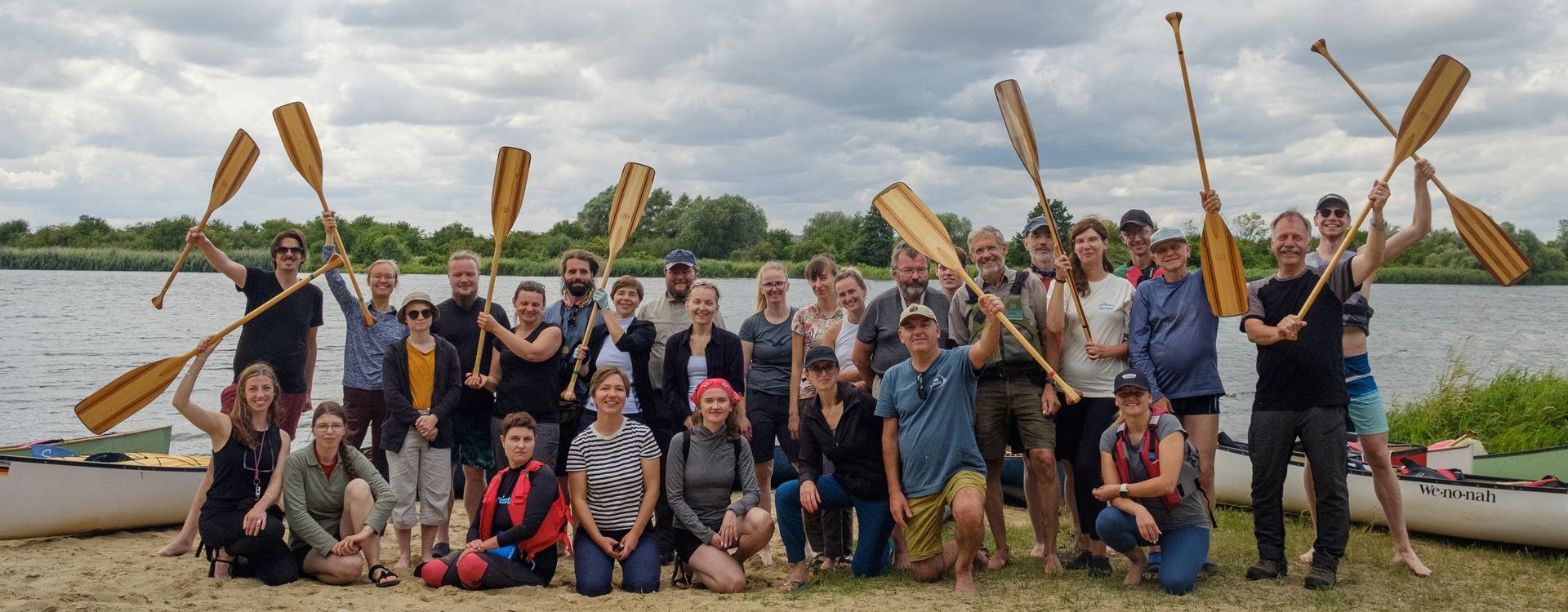
July 11-15, 2022
Estonia & online
The international River University - 3rd Edition:
The 3rd edition of the River University took place in Estonia on 11-15th July 2022, focusing on flood risk management and promoting open science.
We were hosted by the Estonian Water Association, CCB Observer and Co-organizer of this edition. As usual, besides the national water issues and cases, we checked the European background:
- How the situation of flood risk management in Europe looks like recently, having in mind the huge flood devastations happened in some European countries in 2021?
- What example does Estonia give us as the country with its so-called 5th season*?
- How climate change affects it?
- How does society cope with the floods and what is the government's approach?
The main topic of this edition was chosen by the founder - Ewa Leś, CCB Working Group Leader on Eutrophication - on the basis of a real need: we all remember the recent huge floods devastation in some European countries like Belgium and Germany. Still, we have many questions with no clear answers: can we prevent floods? How can we operate with flood risks, is it possible to live and adapt to floods? What tools and governance are in place?
*In the Riisa village in Soomaa, the time of early spring floods is known as the fifth season.
PRACTICAL INFORMATION
The organizer of our stay in Estonia: Maret Merisaar, Estonian Water Association.
WHEN:
July 11-15, 2022
WHERE:
Estonia, few river-related locations across the country.
For on-site participants, on 11 July 2022 the River University 2022 started at the Tallinn University of Technology, mainly in building SOC (Akadeemia tee 3) and the auditoorium SOC 211A. You can find a map of the campus here.
HOW:
As usual, we combined indoor lectures with outdoor practice on/in the river. A full boat of riverine knowledge was delivered by the top lecturers from the best universities, also by practitioners who know rivers simply by working on it tirelessly.
Lectures and presentations were provided in English.
Helping each other (e.g. with translation or other issues) was our key element of teamwork.
The course was hybrid, with the main activities organized on site and lectures available also online.
WHO:
We welcomed those interested in inland waters, water management and flood risk management topics, current trends and actual challenges in these fields.
ON SITE (Estonia)
Up to 30 participants were invited on the basis of the registration form, to keep our group familiar and comfortable.
The participation was open to EU Member States as well as Eastern Partnership countries, under the conditions stated in the section "Costs" below.
Only Covid-19 certificate holders were welcomed to join and had their costs covered by CCB.
ONLINE
Online participation was open to everyone: some of the lectures were livestreamed on the CCB Facebook page, some of them were recorded and will be shared after the event.
The outdoor experiences were not delivered online.
REGISTRATION:
The registrations for onsite & online participants are closed.
Only vaccinated people were welcome to join us and had their costs covered by CCB. A valid (not older than 48 hrs) negative PCR test was accepted, if a vaccine was not yet available.
Please,
DO NOT buy any tickets
before getting a confirmation from the organizers.
COSTS:
The course was free of charge.
The costs of the participation (accommodation, travels, meals, lectures and outdoor activities) were covered by CCB.
Refunded costs for participants up to 250 Euro include travel costs for participants from EU Member States, as well as from Eastern Partnership countries.
CCB is not responsible for injury or loss of property during the River University 2022.
Lectures
11 JULY 2022
MARIA FALALEEVA, International NGO EKAPRAEKT
NELSON VENEGAS C.,
Warsaw University of Life Science
ALVINA REIHAN, PhD, Estonian Water Association
NARVA WATMAN. EE-RU Project for common methodology for flow measurements
(PDF)
12 JULY 2022
KARIN KLAUS, Pärnu Nature House
13 JULY 2022
EWA LEŚ, Coalition Clean Baltic, River University founder
Open science within river ecology: how to make the best of it? (PDF)
ANNA USHAKOVA,
Ecocentrum, Coalition Clean Baltic
PIOTR MATCZAK, Adam Mickiewicz University in Poznań
ILONA BIEDROŃ, Hektary dla Natury Foundation
MARET MERISAAR, Estonian Water Association, Coalition Clean Baltic
MAIT SEPP,
University of Tartu
Floods in Estonia (PDF)
14 JULY 2022
TOOMAS TAMM,
University of Life Sciences, Head of the Water Engineering Department &
TOOMAS KAPP, Tartu Waterworks
How Tartu is mitigating the floods from Emajõgi river? (PDF)
ENE INTERMITTE,
Tartu University member of EstWA's Board
Studies of the health risks related to fluoride content in the drinking water in South Estonia (PDF)
15 JULY 2022
ALGIS MARTSOO,
Soomaa.com, tourism company
Estonia: country of the 5th season phenomena, floods of Soomaa & its nature tourism (PDF)
JANA PÕLDNURK,
WA, Head of the Hydrological Dept of Estonian Environmental Agency and member of the Board of EstWA
Pictures from the event
-
Slide title
Water people in the rain surrounded by a wet Kuresoo Bog, with the excellent guides Algis Martsoo and Jane Rebane from Soomaa.co. By Ewa Leś
Button -
Slide title
Explore wilderness of Estonia they say at Soomaa.com, explore ourselves and the teamwork too, we say. By Ewa Leś
Button -
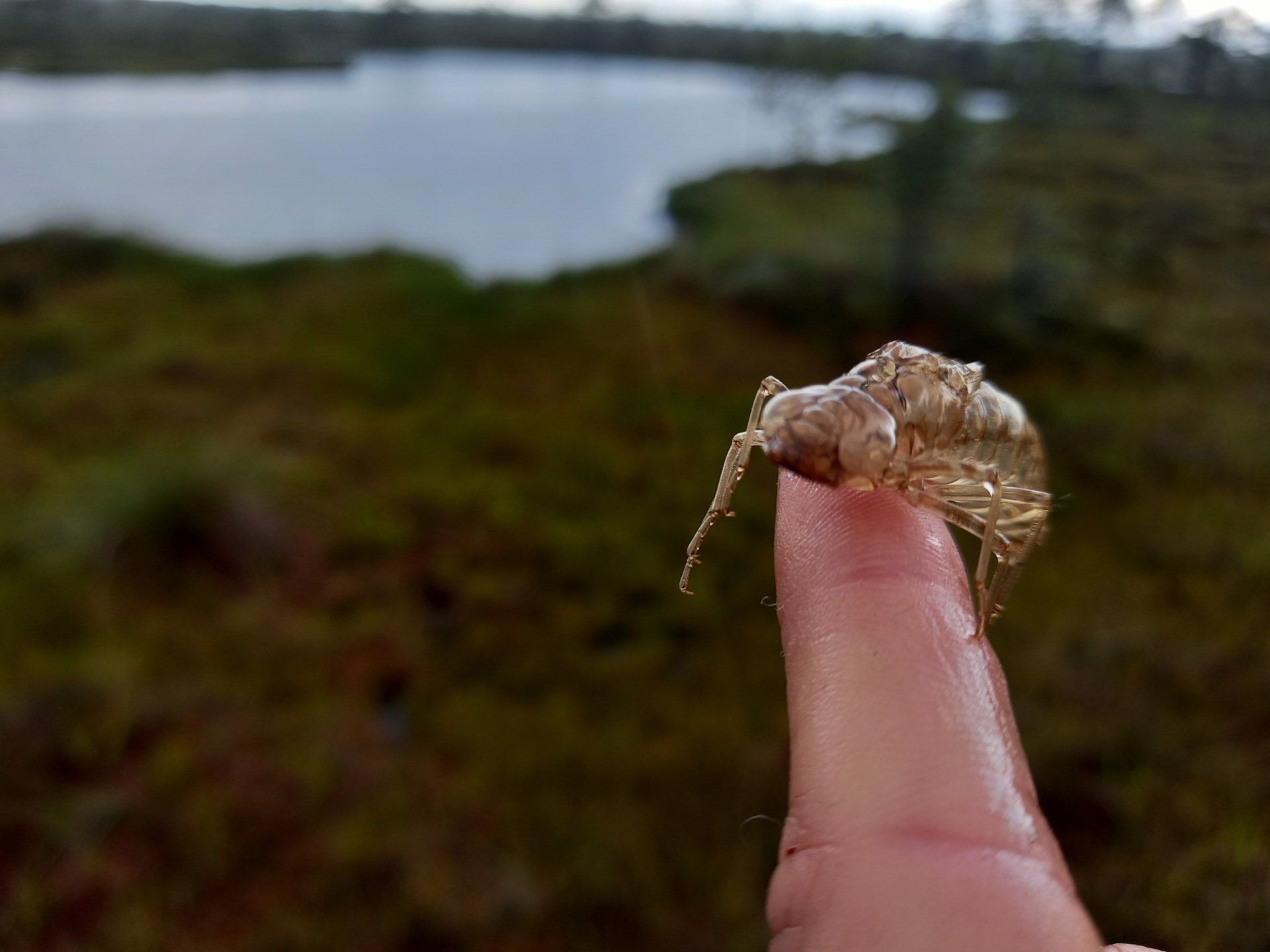
Slide title
River University 2022. By Kari-Anne Van der Zon
Button -
Slide title
Being on water is our usual style during River University. By Ewa Leś
Button -
Slide title
Eesti Maaülikool/Estonian University of Life Sciences welcomed us with Tomas Tamms' hospitality and Arvo Järvet's introduction to the Aardla flood polder nearby Tartu: an area of wet meadows, pastures, grazing land and ponds, surrounding the Aardla Lake. By Wojciech Lewandowski
Button -
Slide title
Example of teaching about water purification technologies, quite important set of practical workshop. By Ewa Leś
Button -
Slide title
Taking measurments from the river before going to water laboratory of TalTech, Tallin. By Ewa Leś
Button -
Slide title
River University was hosted nicely by TalTech - Tallinn University of Technology during our opening day. By Ewa Leś
Button -
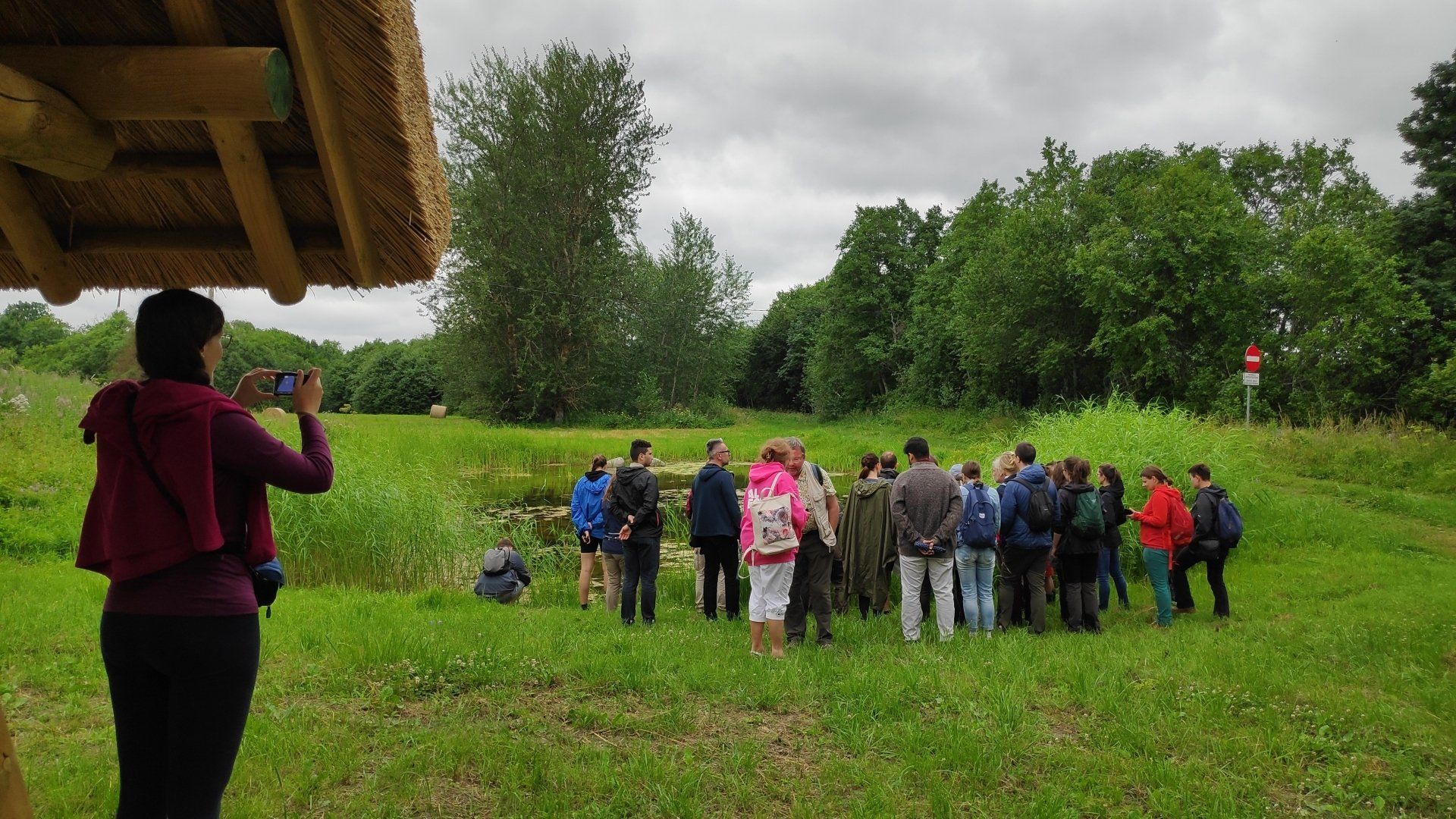
Slide title
Exploring the management of coastal flooded rural areas, guided by the red man, Alex Lotman from Estonian Fund for Nature. An ongo by Ola Sieradzka - Stasiak.
Button -
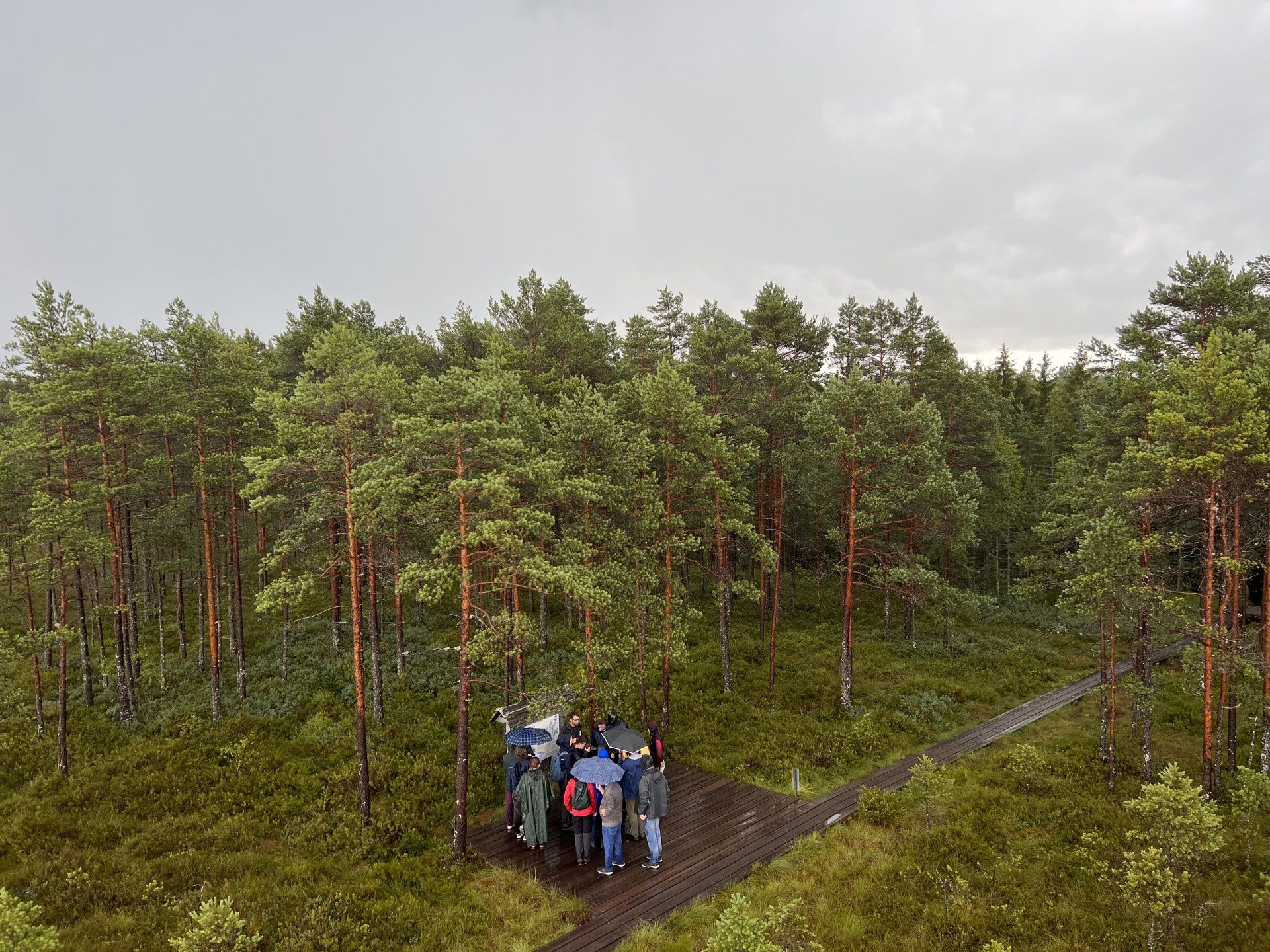
Slide title
River University 2022 by Patrycja Romaniuk.
Button -
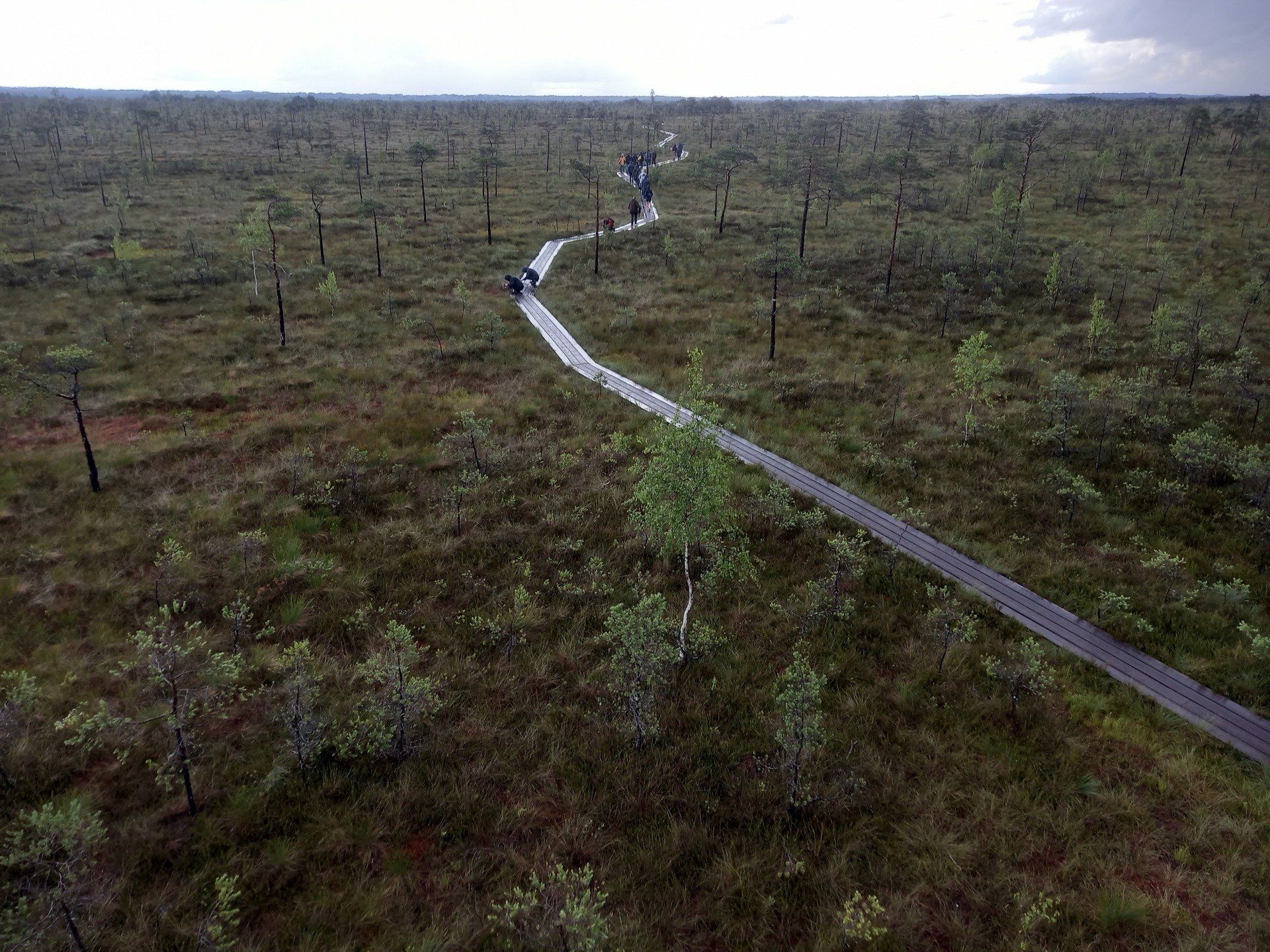
Slide title
River University 2022. By Kari-Anne Van der Zon
Button -
Slide title
Water level marked on the tree reminds about the past flood. By Ieva Savickaitė
Button -
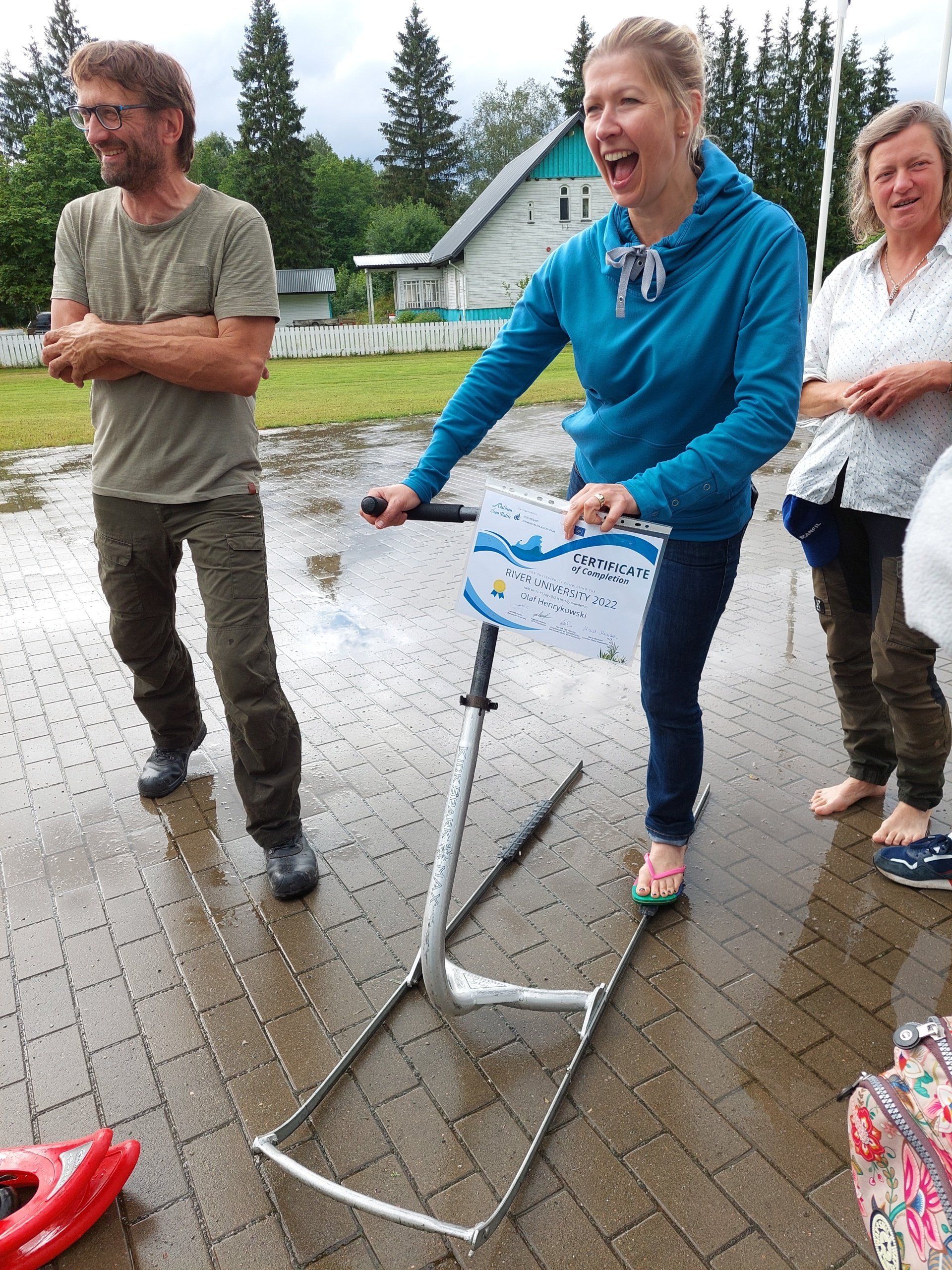
Slide title
Certification in a less formal way, by discovering kick sledging, popular in the wintertime in Sooma. By Magdalena Suchora
Button -
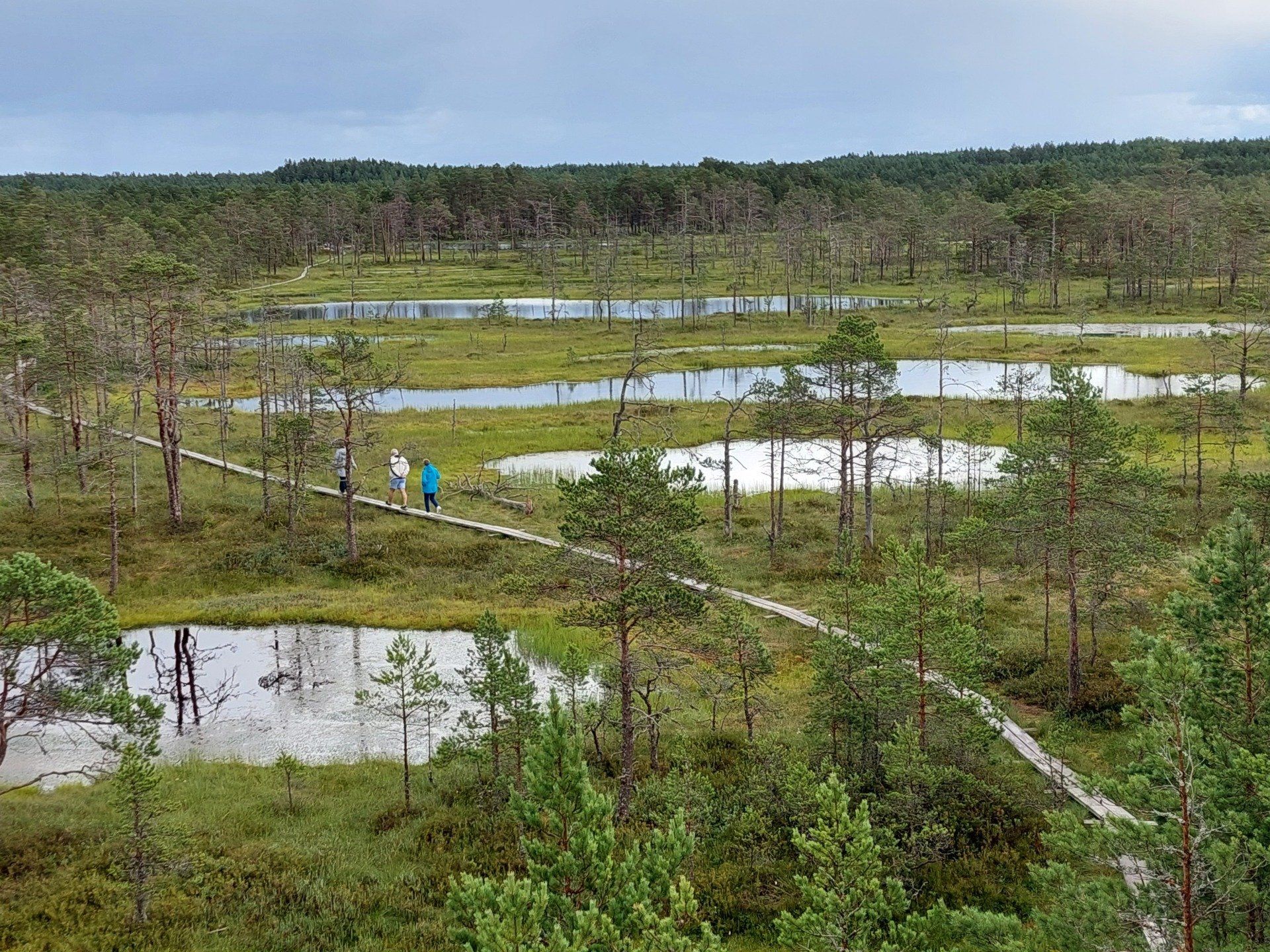
Slide title
Immersing in the Estonian peat bogs in different ways. By Magdalena Suchora
Button -

Slide title
Discovering Estonian rivers in theory & in practice was our goal. By Agata Keller
Button -
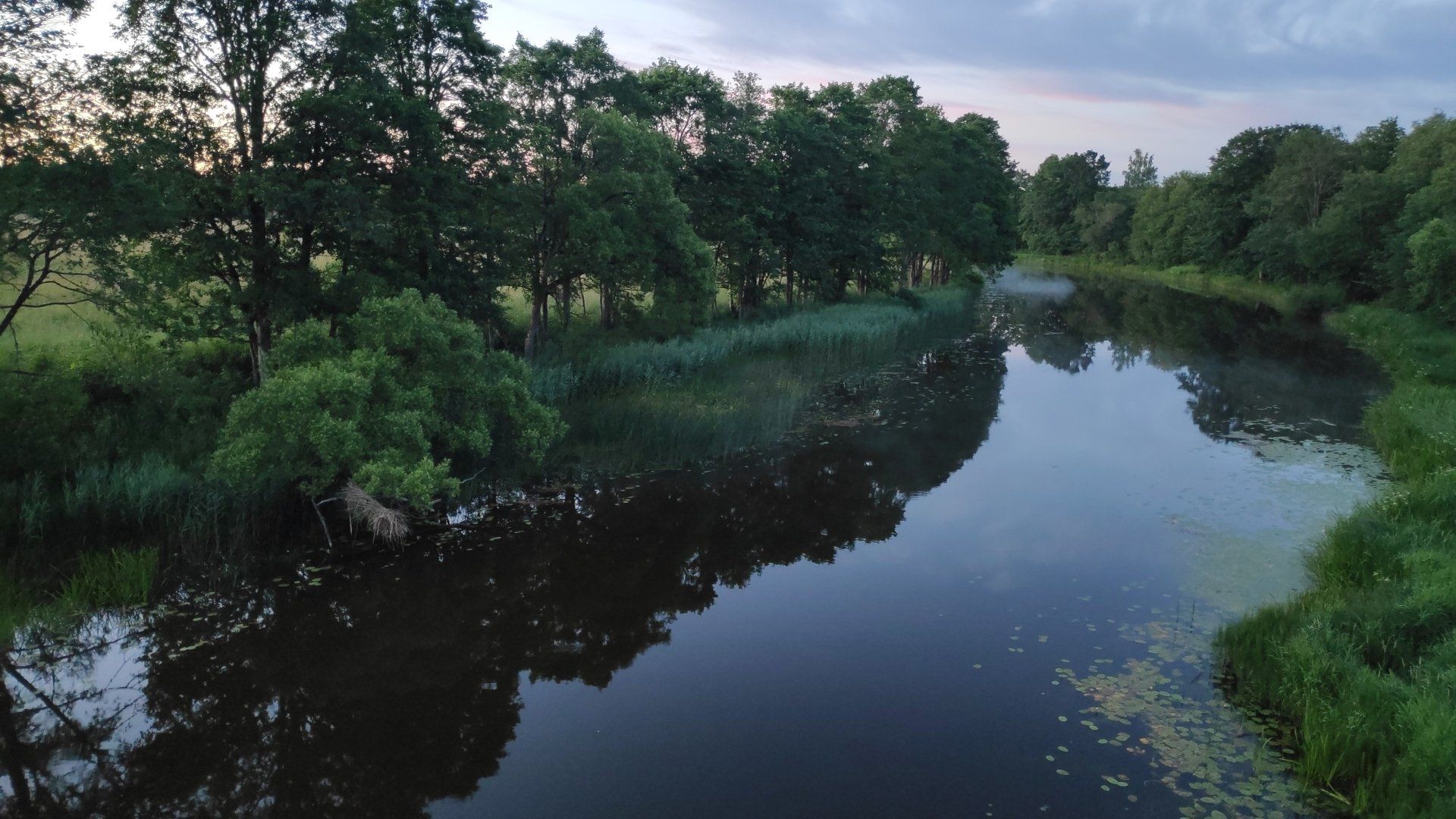
Slide title
Discovering Estonian rivers in theory & in practice was our goal. By Aleksandra Sieradzka Stasiak
Button -
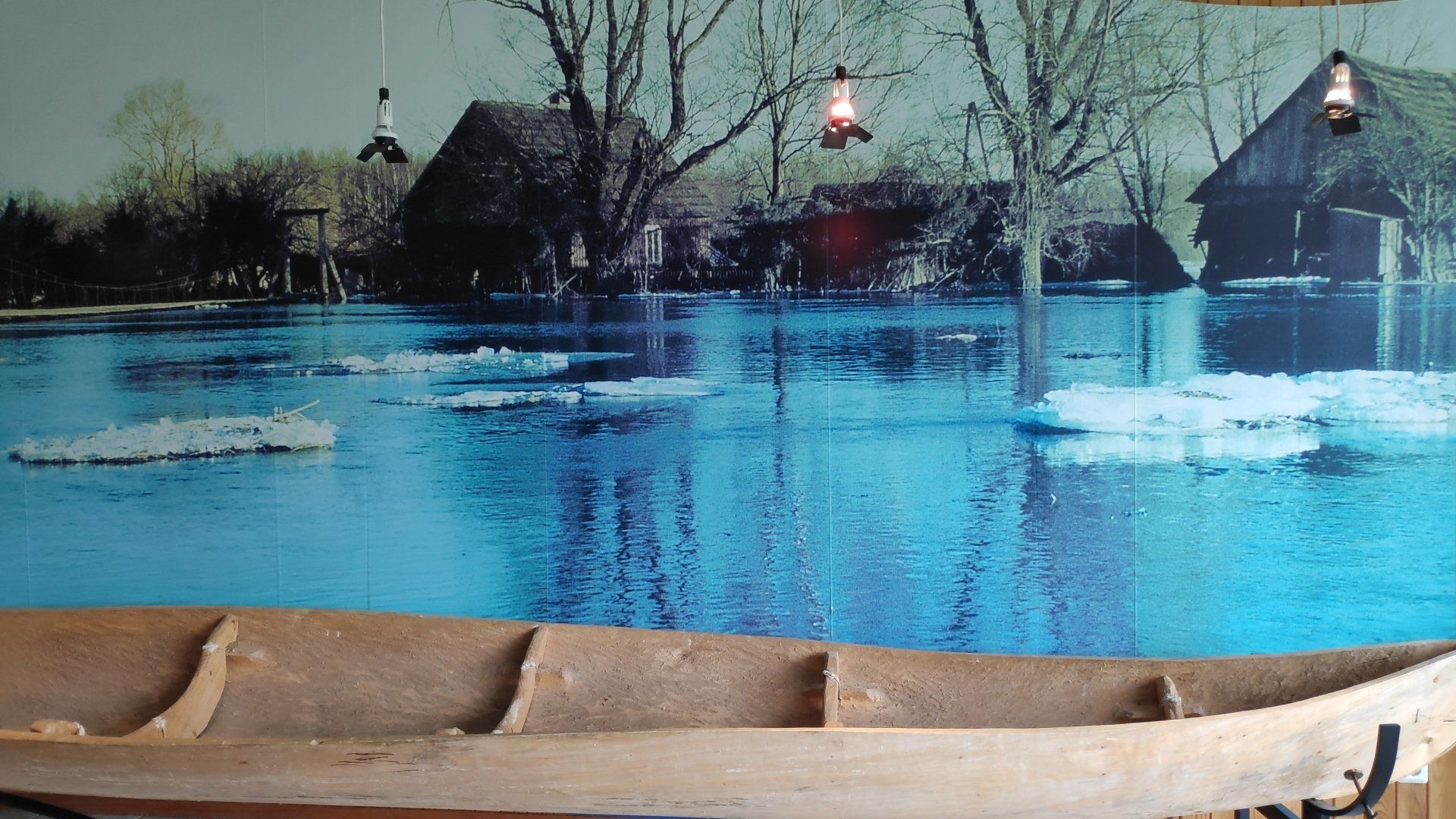
Slide title
The dugout boats culture was one of the examples of how to live and cope with the floods (Estonia's Soomaa region dugout boat culture added to UNESCO protection list - Fenno-Ugria (fennougria.ee)).
By Aleksandra Sieradzka Stasiak
Button -
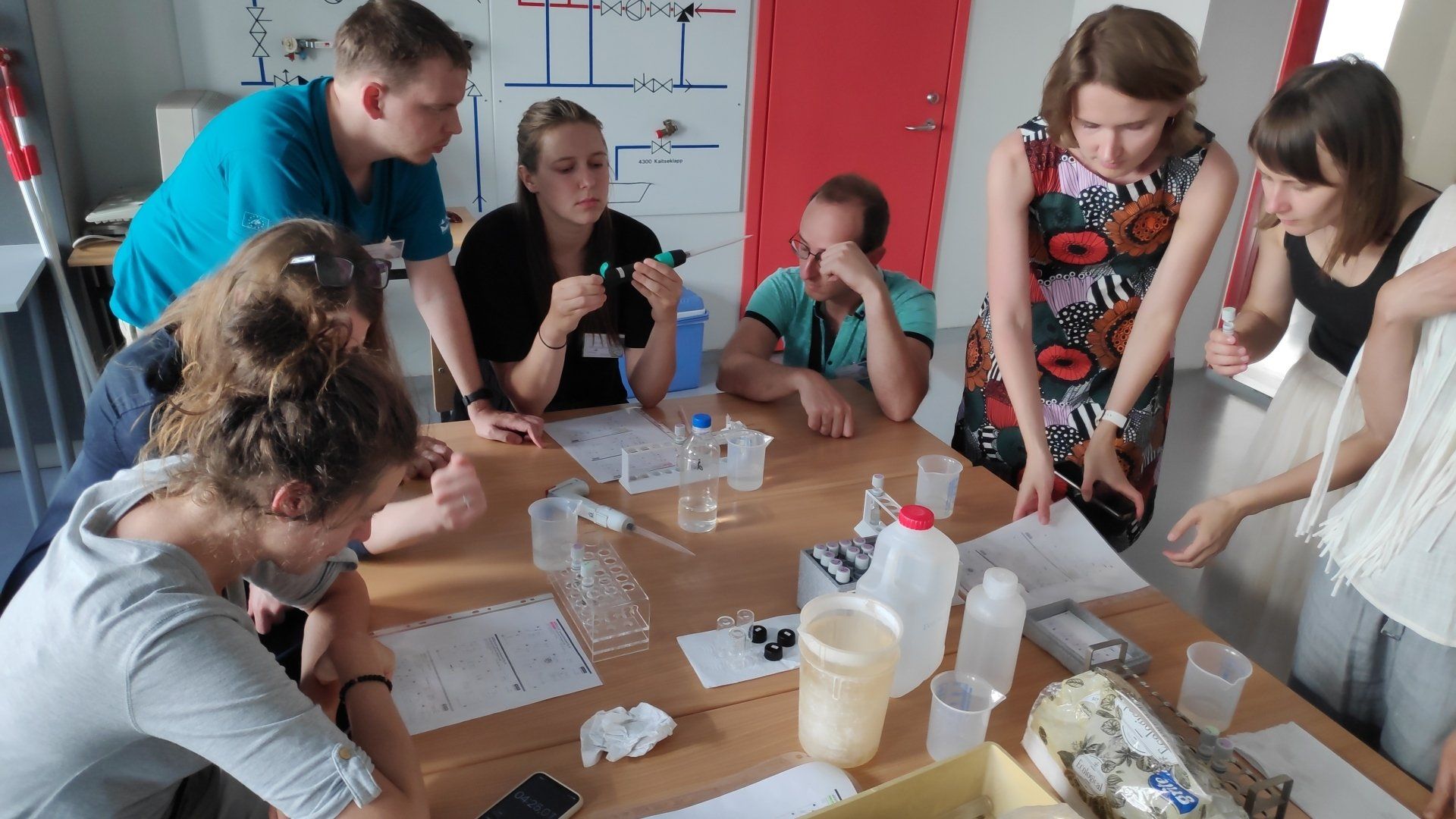
Slide title
What we got by water sample from the river we tested in the laboratory. By Aleksandra Sieradzka Stasiak
Button -
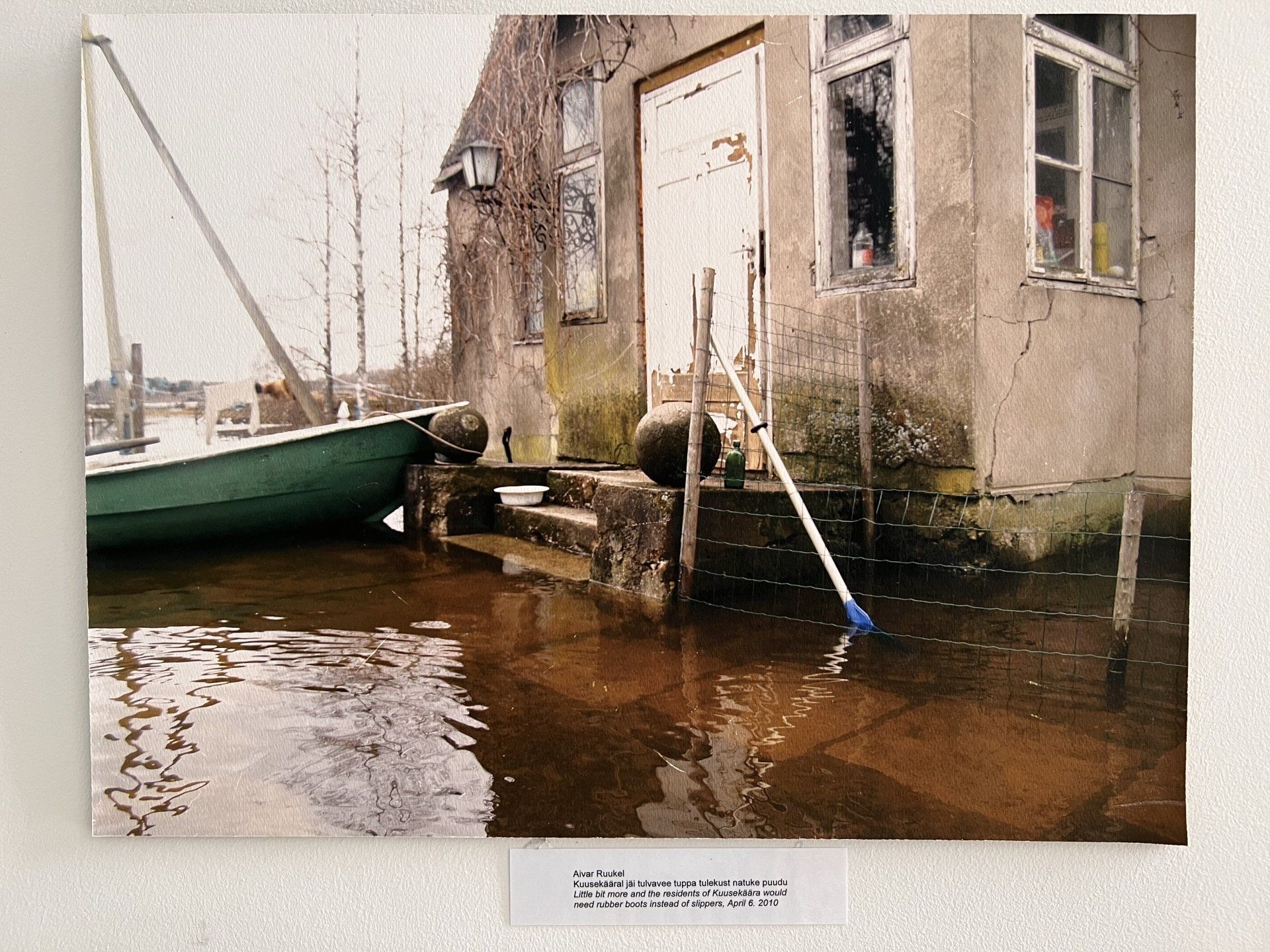
Slide title
Floods in Estonia make their impact, they teach how to adapt. By Patrycja Romaniuk
Button -
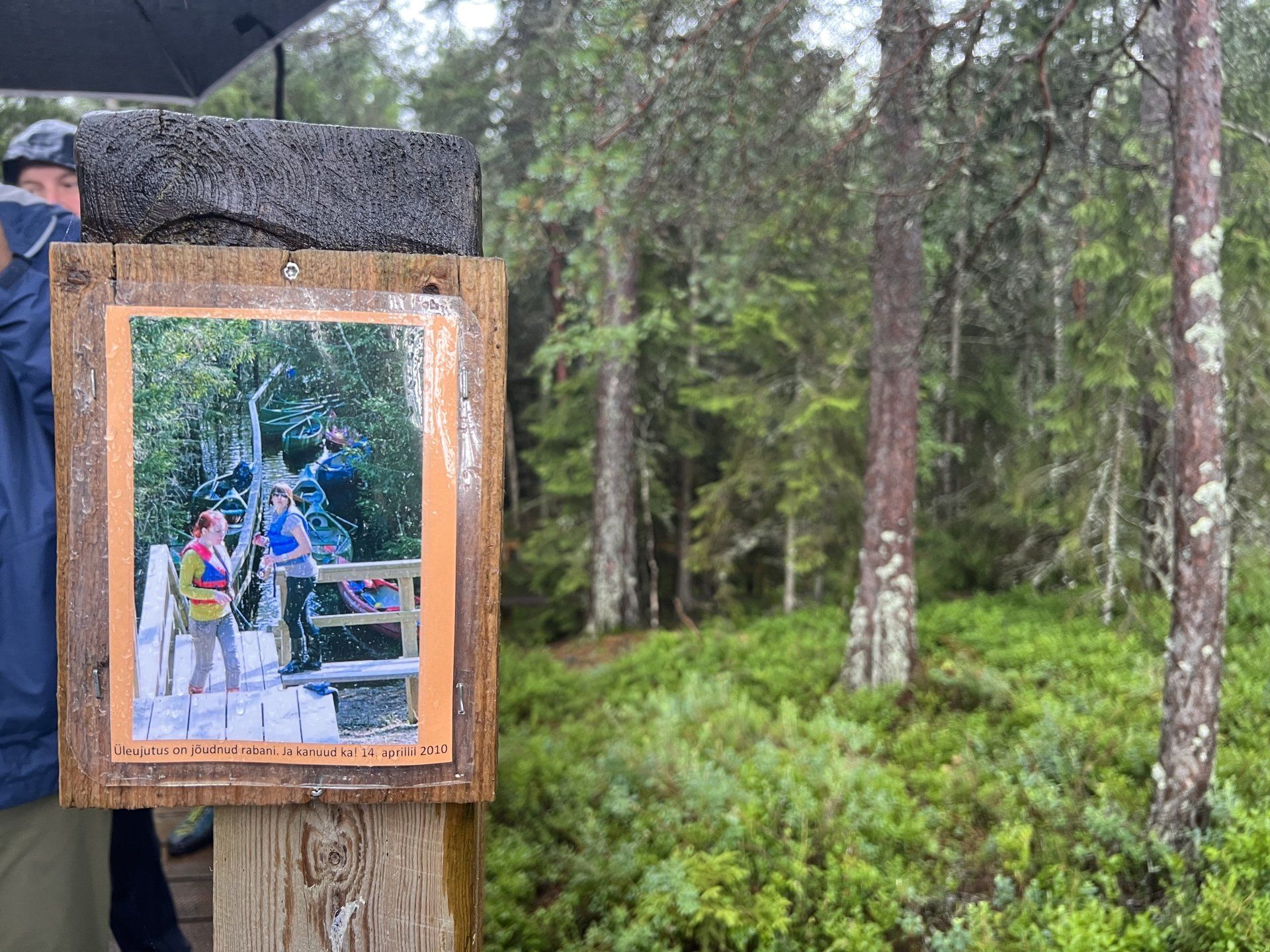
Slide title
Floods in Estonia make their impact, they teach how to adapt. By Patrycja Romaniuk
Button -
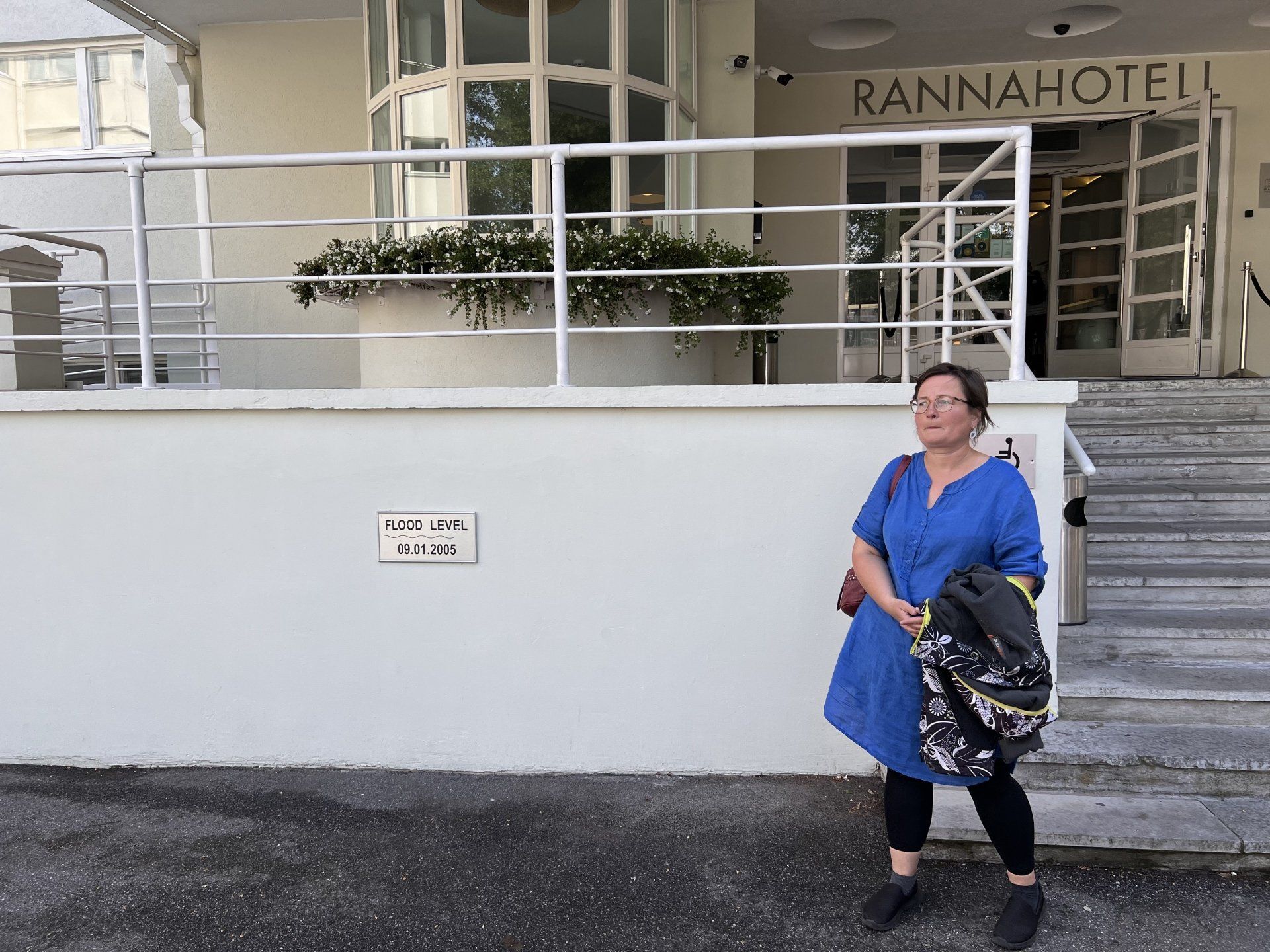
Slide title
Signs of the floods are everywhere, in different parts of Estonia, the signs take a role of good memory across the decades. By Patrycja Romaniuk
Button -
Slide title
Results from the participants: How do you understand the coordination and synergy of planning in flood risk management vs. water protection?
Button
Contact person:
Ewa Leś, CCB Working Group Leader on Eutrophication
+48661252079
evvales@gmail.com
Originator and founder of River University/Rzeczny Uniwersytet (tested in 2018, established internationally in 2020). A biologist by profession, but looking towards people and their perception of the environment. Co-founder of Koalicja Ratujmy Rzeki/Save The Rivers Coalition (KRR), a social initiative for the protection of natural rivers in Poland, gathering the voices of ‘river stakeholders’ into one strong tone. Member of EEB water working group, Observer of International Commission for the Protection of the Odra River against Pollution. Co-creator and coordinator of the first Water Round Table in cooperation with the Polish Ministry of Environment (2009-2011). Engaged in creating a Partnership for the Baltic initiative (2007-2011). Particularly working in areas of transboundary rivers, water stakeholders inclusion and engagement, water conflicts, water democracy building. A supporter of NVC dialogue. She comes from her two parental organizations: Society of Friends of Ina and Gowienica rivers and EkoUnia Association.
~ Let’s go with the river flow and learn from each other! ~
The event is co-organised by the
Estonian Water Association
and Coalition Clean Baltic.
The event is part of the
Nature Positive Universities network.
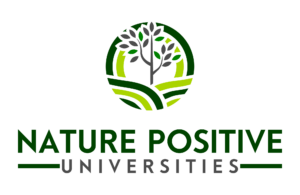
Funded by the LIFE Programme of the European Union
Views and opinions expressed are however those of the author(s) only and do not necessarily reflect those of the European Union or CINEA. Neither the European Union nor the granting authority can be held responsible for them.
The River University is one of our annual events.
You can read more about the project and the previous or future editions.
